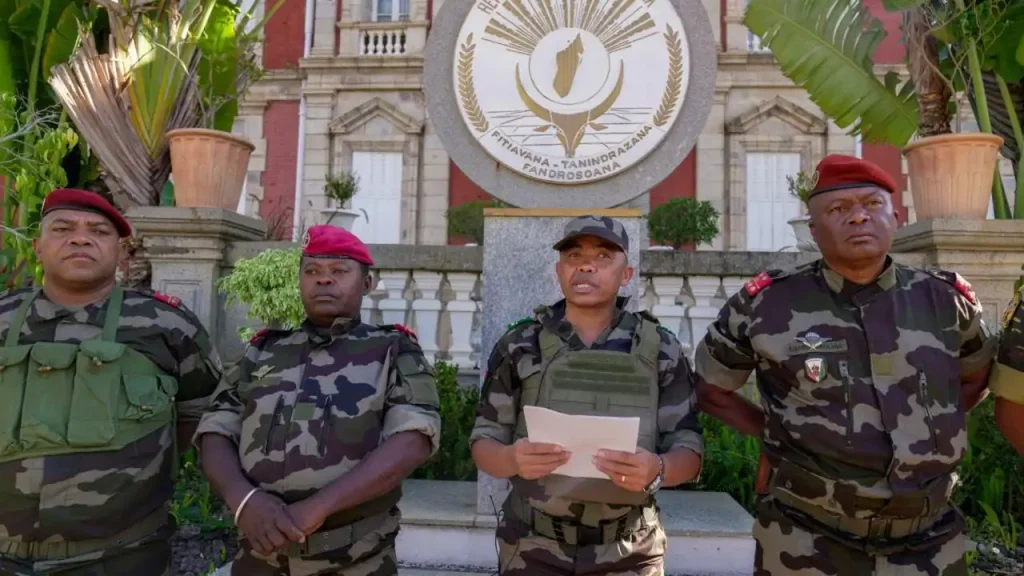Madagascar’s President Andry Rajoelina fled the country amid a military-led coup driven by youth protests over water and power shortages.
The crisis, escalating since late September, has plunged the nation into turmoil. Rajoelina’s exit marks a turning point for the island’s future.
President’s Sudden Departure
On Wednesday, October 15, 2025, Rajoelina confirmed he left between October 11 and 12 due to severe threats to his life.
The dangers emerged as he planned an overseas trip. Sources report he boarded a French military plane on Sunday, finding safety abroad.
Rajoelina, 51, accused the National Assembly of plotting with the military to oust him. He now resides in a secure location, vowing to fight the takeover. His 2009 rise via a military-backed coup adds irony to his current plight.
Youth Protests Fuel Coup
Gen Z-led protests began September 25, demanding solutions for ongoing blackouts and water scarcity. Thousands rallied in Antananarivo, gaining support from defecting military units.
On Saturday, troops declared a takeover, naming Colonel Michael Randrianirina as interim president, set to assume office Friday.
The youth movement cheered the shift, seeing it as a win against failed governance. Rajoelina called the action illegal, deepening the nation’s divide.
Global Concerns Mount
The United Nations labeled the coup “unconstitutional,” urging calm and talks. On Wednesday, the African Union suspended Madagascar, aligning with responses to coups in Mali, Burkina Faso, Niger, Gabon, and Guinea since 2020.
Flight suspensions by major airlines have further isolated the country.
The international community fears prolonged instability. Madagascar’s crisis reflects a broader trend of unrest in former French colonies, challenging regional stability.
Rajoelina’s Mixed Legacy
Rajoelina’s 16-year political career included five presidential bids and a 2008-2013 prime minister role after a disputed 2007 election sparked violence.
His 2018 win faced boycotts, and critics blame him for neglecting basic services, igniting youth anger.
The military plans a two-year transition, keeping the National Assembly but dissolving other bodies. Elections are promised, but over 130 protest-related deaths signal ongoing tensions.
Uncertain Road Ahead
Madagascar faces a critical juncture. The Gen Z movement demands accountability, while Rajoelina’s allies decry the coup. Global calls for elections may push progress, but poverty and infrastructure woes persist.
This upheaval highlights Africa’s governance challenges. The youth’s bold stand has shifted the narrative, but stability remains elusive. Whether this sparks reform or chaos is unclear.
READ MORE: US Deports More West Africans to Ghana Amid Legal Challenge




















